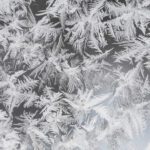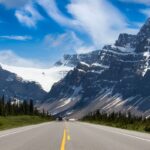Research-engaged communities benefit from open access
Menzies works with conservation practitioners, community members, and Indigenous knowledge holders. She notes that, due to the paywalls of subscription-based publishing, those working outside government and academia often don’t have the same level of access to peer-reviewed science. This inequity of access hinders the building of equitable relationships between community partners and institutions of Western science.
Open access eliminates the paywall, advancing equity. “Just to have everyone come to the [decision] table with the same access to information or the same forms of information deemed as legitimate [by the Government] is hugely important,” Menzies says.
Access to research is also helpful for a community’s own decision-making and planning, Menzies adds. “The benefits are huge in terms of seeing what other people are doing, the methods and approaches, and what kinds of questions can be answered with different approaches.”
Knowledge systems are connected to climate change
In 2019, researchers and Indigenous communities across the Anishinaabek territory (Great Lakes region of Ontario, Canada) came together for the workshop, Connecting Guardians in a Changing World. “[W]e discussed what the community representatives felt were the biggest impacts of climate change to the environment, their way of life, and their research priorities surrounding climate change,” Menzies explains.
Many comments focused on matters familiar to Western scientists like changes in phenology, water quality, and weather. “The thing that stuck out for me was how [communities] feel as though their knowledge systems are being degraded because it’s so tied to the environment and long-term observations,” Menzies shares. “[T]he environment is changing so quickly, there’s a mismatch between what they know and what’s happening around them. They’re unable to read the land and connect with it in the same way [as they used to].”
When it comes to climate justice, many agree that Indigenous knowledge systems are “critical” for policy and decision-making. “Indigenous Peoples around the globe are the ones being impacted the most by climate change, yet a lot of the policies and decisions are made based mostly on Western science,” says Menzies.
By failing to consider non-Western knowledge, we miss opportunities to incorporate the best available knowledge. “As scientists, we go out into the field, collect data, then go back to the city. Indigenous Peoples, farmers, anglers, naturalists, and others who are really connected to a localized piece of the world are probably the first to see the changes,” says Menzies. “They have a wealth of knowledge that needs to be valued and shared.”
Community rights need to be considered for open research
The information captured in the Connecting Guardians in a Changing World workshop came from the Indigenous communities and is about their communities. Though the workshop’s proceedings are published open access and anyone can freely read the paper, upholding community rights can be at odds with open access principles.
“What constitutes data versus someone’s sacred knowledge and intellectual property, and who owns that and has a right to see it?” asks Menzies. “[Are the data] the original transcripts [or] the condensed quotes I provide in my paper? It’s a really tricky question, even when we anonymize the information.”
Tricky questions call for being open to learning and having open conversations, tenets of community-engaged research.
There are moral reasons to ensure the open access movement progresses in a way that benefits and protects communities, especially those disproportionately impacted by climate change.
As Menzies reflects, “[w]hether we’re talking about climate justice, environmental justice… knowledge is power. Information is power. I think that [open access] has a role in rebalancing that power a little bit, if we chose so.”




